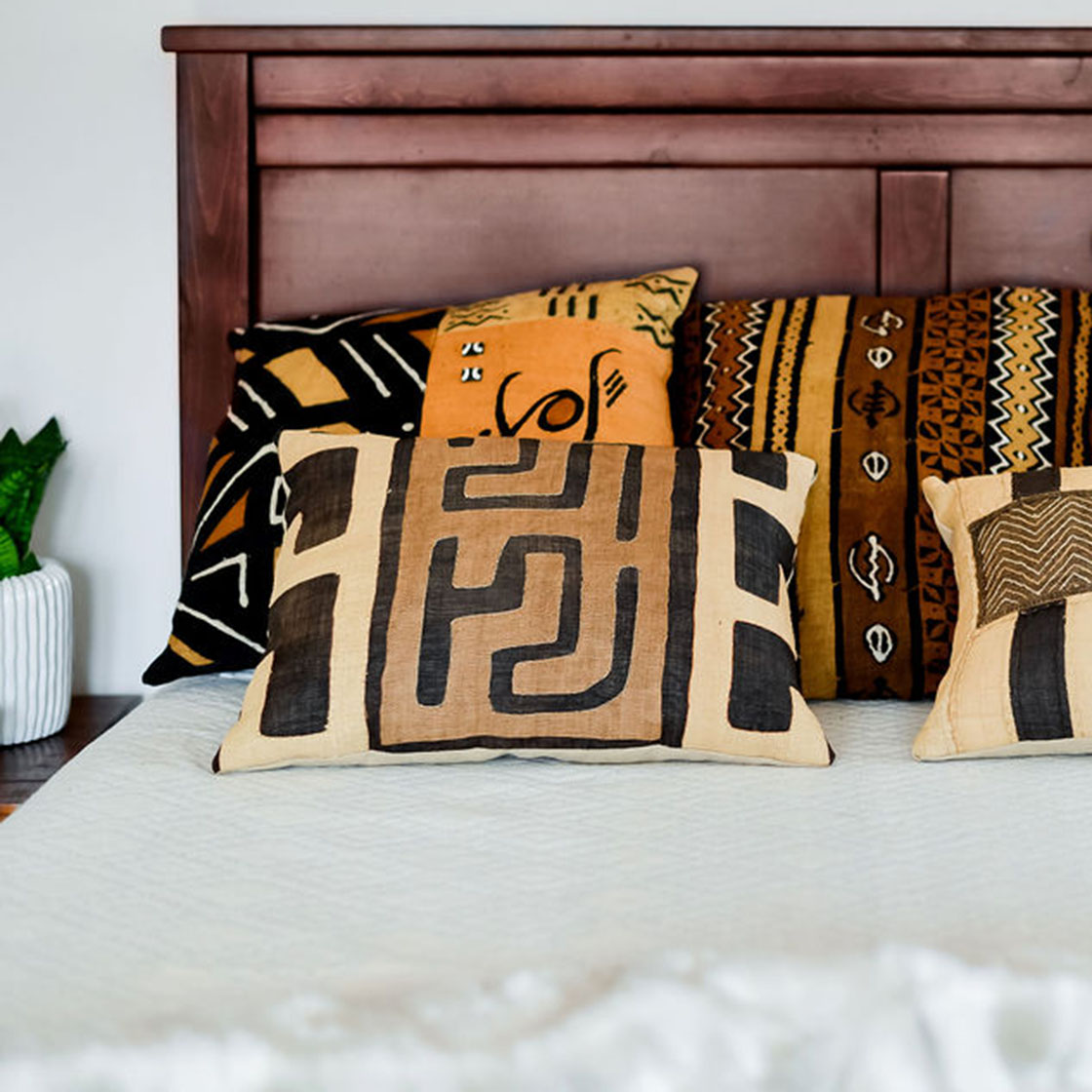Beledougou


Beledougou
The Beledougou pillow celebrates West African culture in a very bold way and can make a statement where ever the pillow is placed. This one-of-a-kind pillow was made with three types of hand spun cotton mud cloth I collected while in Bolgatanga, Ghana. Originally made in Mali, high quality mudcloth is now made in several other West Africa countries.
DETAILS:
21” x 21” (53.3 cm x 53.3 cm)
Front - cotton
Back – linen, in black
Zipper closure
Polyester pillow insert
Fabric origins: Mali, Ghana
THE STORY:
I have long been fascinated with the African textiles known as “mud cloth.” Every piece of this cloth is unique and has a story to tell. Originally, mud cloth was from Mali in West Africa. Mud cloth is also called “bogolanfini” and consists of three words: bogo, lan, and fini. Bogo means “earth” or “mud,” lan means “with,” and fini means “cloth.” Each symbol painted in the cloth has special meaning and can tell the history of a village, a person’s occupation, social status, or proverbs. Some symbols remain a mystery
Traditionally men weave narrow cotton strips of fabric that are pieced together to form a larger rectangular cloth. Women dye the cloth by first soaking the fabric in ground leaves creating a yellowish color. It is then dried and covered with a fermented mud to achieve patterns in black, brown, and white.
These first two steps can be repeated many times to achieve the desired patterns and colors.
The left section of this pillow has bold, traditional patterns in black, tan, brown, and white. The center section is a bit unusual as it appears to have a very stylish bird painted on the brown fabric in black. But, then, it could be a symbol for something entirely different. The center section also is embellished with two batik bone beads. Above and below the center, are tan pieces with black symbols. I do believe the symbol with three lines represents the spindle, a very old and traditional design.
I purchased the mud cloths is a large market in Bolgatanga, Ghana. I was working with basket weavers who were part a women’s development project withinTrade Aid Integrated, a fair trade organization who markets the baskets.
